International
Brazil’s Bolsonaro condemns Nazism after podcast row
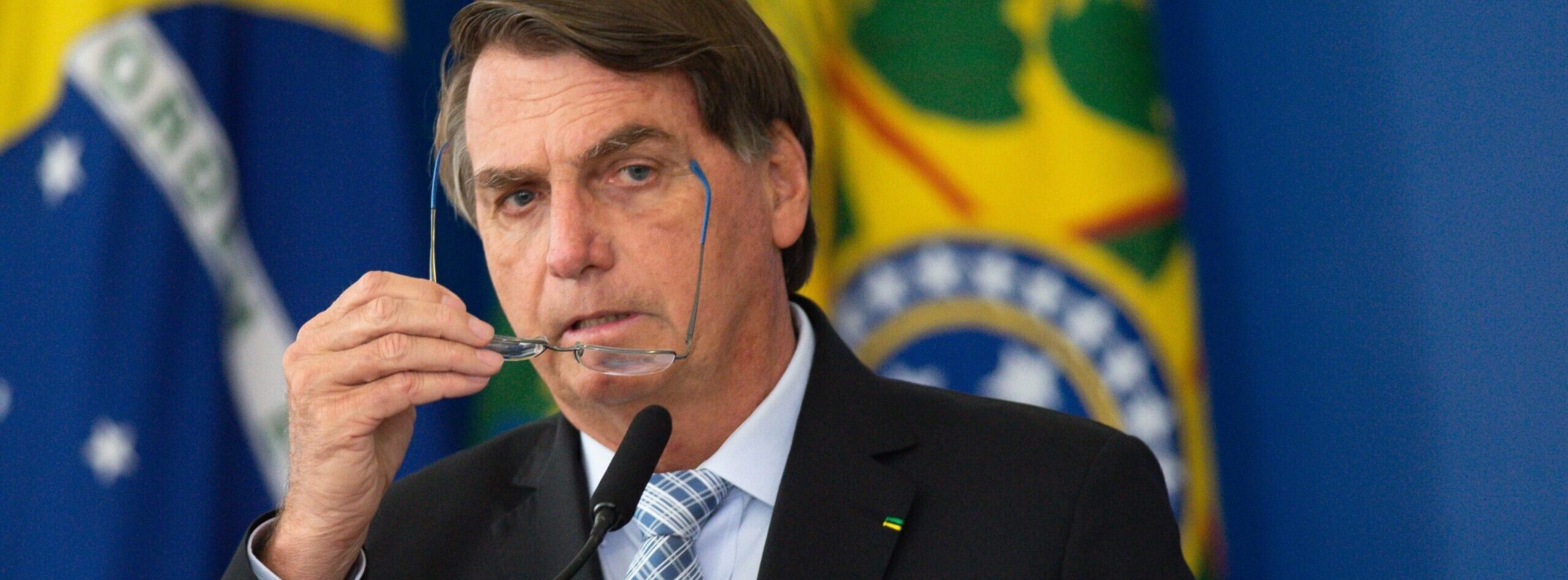
AFP
President Jair Bolsonaro has waded into a swirling controversy over Nazism unleashed by a popular podcast in Brazil, saying it should be repudiated along with every other totalitarian ideology, including Communism.
The far-right leader’s comments came after star talk show host Bruno “Monark” Aiub said Monday during his YouTube podcast that Brazil “should have a Nazi party recognized by law.”
Aiub’s remarks led prosecutors to open a hate speech investigation against him, and ignited a firestorm in Brazil, which is deeply divided heading into elections in October in which Bolsonaro is expected to face leftist ex-president Luiz Inacio Lula da Silva.
With his hardline base facing scrutiny, Bolsonaro — himself no stranger to criticism for his past statements on Nazism — took to Twitter to stake out his stance, without directly mentioning Aiub or his remarks.
“Nazi ideology should be unconditionally and permanently repudiated, without exception, like EVERY totalitarian ideology that places fundamental freedoms such as the rights to life and liberty at risk,” the president wrote.
“Our wish is for other organizations that promote ideologies that preach anti-Semitism, the division of people by race or class, and that also decimated millions of innocents around the world, such as Communism, to be included and combatted by our laws, as well,” he added.
“This needs to be a moment for reflection and maturity with regards to the kind of environment we want to create for Brazil. Let us all show better judgment and more responsibility.”
Aiub, who faces up to five years in prison if convicted of defending Nazism, said during an interview with lawmakers that all ideologies should have a space in Brazil.
“The radical left has much more space than the radical right,” he said, calling for the creation of a Brazilian Nazi party.
“If someone wants to be anti-Jewish, I think they have the right to be.”
He later apologized, saying he was “totally drunk” when he recorded the podcast.
Bolsonaro has himself caused controversy with his comments on Nazism in the past.
In 2019, he said during a visit to Israel the Nazis were “leftists,” because of the word “socialist” in their official name, the National Socialist German Workers’ Party.
International
Two fans killed in gate collapse outside Chile’s Estadio Monumental

Two people lost their lives near the Estadio Monumental in Santiago, Chile, following a chaotic incident that occurred before the Copa Libertadores match between Colo Colo and Brazil’s Fortaleza on April 10. According to the Public Prosecutor’s Office, the victims were crushed after a fence on the stadium perimeter collapsed, though authorities are investigating whether a police armored vehicle may have played a role.
It was a black Thursday at Chile’s Estadio Monumental. Two local fans died outside the stadium after a yet-unclarified incident caused a metal gate to fall on them, leading to fatal asphyxiation.
Local media reports indicate that a group of fans attempted to force their way into the stadium before kickoff. In response, local police allegedly deployed armored vehicles to block the breach.
Preliminary reports cited by local newspapers and news agencies like EFE identify the victims as two young individuals—one 18 years old and the other just 13.
International
Dominican Republic mourns over 200 dead in Jet Set nightclub collapse
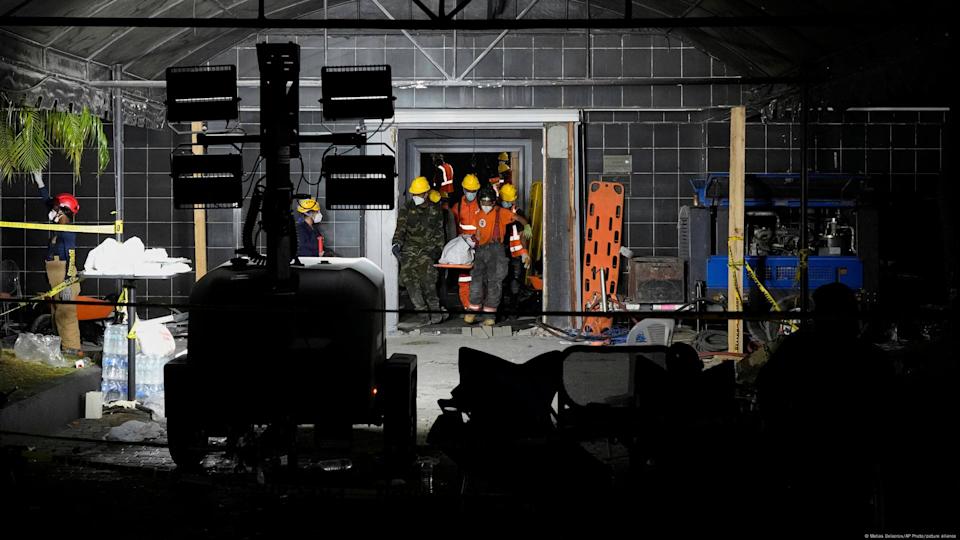
On Thursday, April 10, 2025, the Dominican Republic began mourning the more than 200 victims of the collapse of Jet Set nightclub in Santo Domingo, although many families are still desperately waiting for the remains of their loved ones.
The roof of the Jet Set club collapsed in the early hours of Tuesday, April 8, during a live performance by iconic merengue singer Rubby Pérez.
Rescue workers were completing the recovery of human remains from beneath the rubble of corrugated metal and steel beams, as search efforts ended with no further hope of finding survivors.
Around the morgue, the atmosphere was one of grief, anguish, and despair. A list of the deceased was posted on a canvas covering a nearby tent, where crowds gathered in distress. Health Minister Víctor Atallah stated that forensic teams are working at full capacity and urged patience. “No one will go unidentified, and no one will be left without answers,” he promised. “We will turn over every last stone if we have to.”
The tragic collapse also claimed the lives of several foreigners, including a significant number of Venezuelan nationals who were present at the club, according to local newspaper Listín Diario. The outlet reported the official death toll at 221, which included one Haitian, two French nationals, one Italian, and one Kenyan.
Meanwhile, relatives, friends, and fans of Rubby Pérez released white balloons outside the National Theater shortly before the hearse departed with the remains of the beloved singer, known for hits like “Enamorado de ella” and “Buscando tus besos.” Draped over his coffin were both the Dominican and Venezuelan flags, the latter symbolizing the country where his fame took off.
International
Venezuelan oil shipments resume after tariff-induced delays

Many buyers of Venezuelan oil have resumed loading tankers after a week of pauses and delays at the country’s ports, caused by tariffs imposed by President Donald Trump on importers of crude from the OPEC member nation, according to shipping data and documents.
In March, the United States gave Chevron and other foreign partners and clients of Venezuela’s state oil company, PDVSA, until May 27 to gradually wind down operations and cease crude exports from the country. Days later, Washington imposed tariffs on buyers of Venezuelan oil and gas.
The measures triggered the suspension of some shipments at the country’s main oil port, Jose, and caused delays at smaller terminals. Many vessels that had left the Jose port and moved away from the coast amid the announcement of the measures have since returned to complete their loadings. In recent days, tankers have begun departing Venezuelan waters en route to destinations such as India and China, according to data and internal documents from PDVSA.
“There was a moment of panic when ships pulled away, but they later received instructions to finish loading,” said a source at PDVSA.
-

 Central America4 days ago
Central America4 days agoHonduras Hosts CELAC Summit Amid Regional Concern Over U.S. Deportations
-

 International3 days ago
International3 days agoRussia and US to Meet in Istanbul for Diplomatic Talks on April 10
-

 Central America20 hours ago
Central America20 hours agoNicaragua seeks ICJ intervention in Gaza conflict amid escalating violations
-

 Central America3 days ago
Central America3 days agoAudit Exposes Major Breaches in Panama Canal Port Concession, $300 Million Owed to State
-

 International4 days ago
International4 days agoTeachers in Southern Mexico Bring Education to Stranded Migrant Children
-
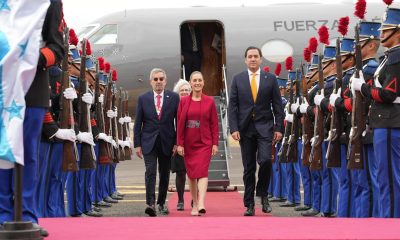
 Central America2 days ago
Central America2 days agoMexico’s president proposes regional economic summit at CELAC
-

 Central America4 days ago
Central America4 days agoMulino and Orsi Highlight Shared Vision After Panama Joins Mercosur as Associate State
-

 International9 hours ago
International9 hours agoDominican Republic mourns over 200 dead in Jet Set nightclub collapse
-
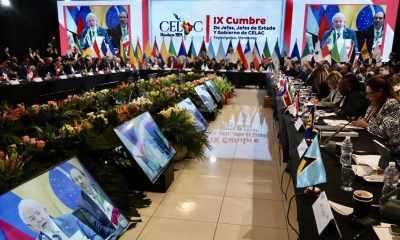
 Central America2 days ago
Central America2 days agoColombia to host fourth EU-CELAC Summit in November
-

 International2 days ago
International2 days agoMerengue concert turns to mourning as Jet Set collapse claims 136 lives
-

 Central America4 days ago
Central America4 days agoTrump Administration Asks Supreme Court to Block Return of Deported Salvadoran
-

 Sports3 days ago
Sports3 days agoNeymar Returns to Santos Training After Month-Long Injury Layoff
-
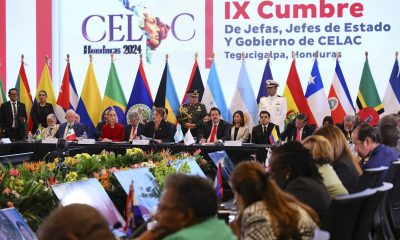
 Central America2 days ago
Central America2 days agoCELAC condemns unilateral sanctions in ‘Tegucigalpa Declaration’
-

 International3 days ago
International3 days agoMaduro Announces Economic Emergency Decree Amid Growing Tensions with the U.S.
-

 International3 days ago
International3 days agoTransgender Student Arrested at Florida Capitol for Using Women’s Restroom Under New State Law
-

 International20 hours ago
International20 hours agoItalian biologist found dead in Colombia; investigation underway
-

 Central America20 hours ago
Central America20 hours agoU.S. Government says deported migrants should remain in El Salvador for life
-

 International3 days ago
International3 days agoScience Brings Back the Extinct Direwolf with Successful De-Extinction Project
-

 International20 hours ago
International20 hours agoMaduro signs Economic Emergency Decree to counter U.S. sanctions on Venezuela
-

 International9 hours ago
International9 hours agoTwo fans killed in gate collapse outside Chile’s Estadio Monumental
-

 International9 hours ago
International9 hours agoVenezuelan oil shipments resume after tariff-induced delays
-

 International9 hours ago
International9 hours agoConstitutional Court Removes Yoon: Lee Jae-myung’s Rise Sparks Warnings of a Radical Shift















